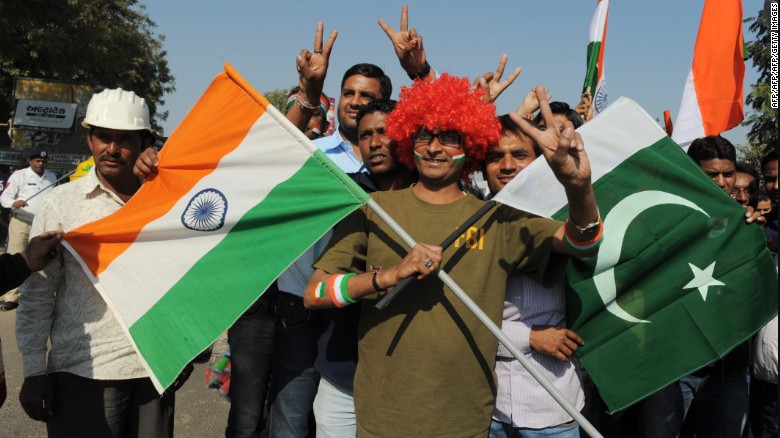Has The Media Taken The India-Pak Rivalry Too Far?
MOHAMMED RIZWAN

TORONTO: In the aftermath of Champions Trophy victory over India, the rude brashness that erupted on Pakistani media airwaves, was absolutely devoid of any moral strength and character one expects from a national media. It was ugly, it was rude and it was unacceptable as a national behaviour.
However, regretfully, it’s true that had India won, the media would have not behaved differently. Media houses on either side of border are using the same book and reading from the same page. And now in a bid to outdo one another, Pakistan has pushed the envelope a bit too far.
Media on both sides will soon find out that the seeds of hate they are sowing are fast growing into towering trees of viciousness and enmity under which the roses would stop blooming forever, no matter how hard the next generations try.
Sports rivalries based on religion, ethnicity and even race are not uncommon throughout the world. Football in Europe, Basketball in North America, Kung-Fu in Asia produce contests that sometimes draw blood to satisfy the frantic crowd. In Bengal the pre-partition rivalry of Mohammadan Football Club and Mohun Bagan was based on a religious divide and in early days of Ranji Trophy the teams used to represent one ethnic group or the other. In Europe Man United Vs Man City, Rangers Vs Celtic, Inter Milan Vs AC Milan and Barcelona Vs Real Madrid have football rivalries that go back hundreds of years and are based on either political divide or religious differences.
But there is a difference here. It was public and the fans that drove the passions and led the frenzy. The governments, states and media all followed. The media in these cases were reflecting public emotions and passions rather than the other way round. In modern times where media is called the fifth pillar of the state, it still largely follows the public sentiment in sports instead of leading it.
However the case of Indian and Pakistani media is a bit eccentric and smacks of foul play. It fans the negativity of the situation and takes lead in initiating the hate trend. It pokes, invokes and stirs every possible spark of hate in the society and then in the name of covering it blows the sentiments into a full-fledged fire.
The real problem lies in when one finds out why the media does what it does. One, the personal interest of money that follows higher ratings and the second but most important it does it to be in good books of that part of the establishment for whom more the hate and rivalry more the personal prosperity. So it becomes a win-win situation for both establishment and the media in the end.
That exactly what happened when Pakistan won the Champions Trophy. Pakistani media spent 10 per cent of its time covering the fans celebrations in London and in Pakistan and 90 per cent of airtime was dedicated to hurling abuse and insults on India and Indian public. Pakistanis are used to victory celebrations and they know how to dance in the streets and how to wave national flags but this time round it looked that some invisible hands are prodding them to do that.
In the aftermath of 1992 World Cup win, there was a night-long celebration in Lahore but Imran Khan did not take the trophy home and it was not Imran alone who was praised by the media and no crowd gathered in front of Pakistan captain’s house. It all looked surreal. Fine, they beat India and they did it after a long time but the country has been winning from India in the past, the public always celebrated it with an extra bounce in the feet but they never based their celebrations on hurling abuse at the opponent.
Another peculiar case is Pakistan captain Sarfraz Ahmed. The guy is from Karachi where a military operation is going on. He was elevated to be Pakistan captain when Azhar Ali, a solid and dependable senior batsman is around. His contributions in Champions Trophy are forgettable as he only could score one 50 in four games and avoided coming on to bat in the final against India. Still a large part of media praised only Sarfraz and thereby, forgetting Mohammed Aamir who took three vital wickets, Azhar Ali, Mohammed Hafeez and Babar Azam who all scored 50s and played out of their skins. Perhaps another Shahid Afridi in the making – who for the last 10 years of his career played for Pakistan regardless or shall we say in spite of his performances on the field.



